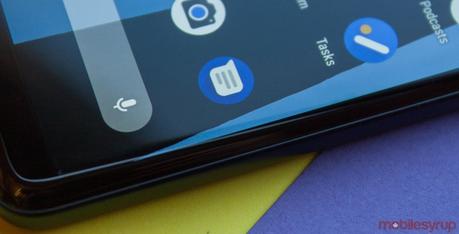
Google's latest messaging platform, RCS, has slowly rolled out to users over the last few years. Even Google recognizes the rollout "hasn't been sufficient," but that may be set to change as the company takes the deployment into its own hands.
In an interview with Wired, Google's director of product for consumer and communication offerings, Sanaz Ahari, said "the reality is the progress hasn't been sufficient from an end-user perspective."
This comes after Google opted to push RCS to users through its own Messages app in the U.K. and France. The move puts pressure on carriers to implement RCS support.
"It's not something where it's is RCS is going to happen? RCS is happening. It's not going to go away now. It is the future. It's just when does it become the future, when does it become a reality for everyone?" Drew Rowny, Google's product lead on messages, told Wired.
Despite that, RCS still isn't available to the majority of Android users and, even where it is available, many users still don't have access. For example, RCS recently came to Pixel 2, 2 XL, 3 and 3 XL devices on Koodo and Telus, but I've yet to see it on my Pixel despite being a Koodo customer.
Why the RCS rollout is taking so long
There are a variety of hurdles to getting RCS out to users. For one, it requires some level of partnership and participation from carriers. Google currently holds partnerships with 43 carriers around the world - a paltry five percent of the roughly 800 network operators that exist.
Nick Lane of mobile market research company Mobilesquared told Wired that financial investment is another hurdle. It would cost most carriers millions to fully upgrade from SMS to RCS. At a time when many networks are investing in 5G, RCS isn't a priority. That said, some carriers see RCS as another profit area, with monetization options in fields like business chat. This perspective could encourage carriers to push out RCS.
Another factor is the sheer number of networks, devices and software versions that RCS has to be compatible with. This is likely the reason that I, and others like me, don't have access to RCS despite carrier support.
Regardless of the many hurdles, Google remains committed to RCS. The company's goal is to replace the older, outdated SMS format with RCS, which includes modern features similar to those found in apps like WhatsApp and iMessage. It's worth noting that one of the most significant features of those apps, encryption, is still missing from RCS.
Google's push in the U.K. and France brought the total number of RCS users up to 311 million as of June. The company plans to roll out RCS to other countries soon but hasn't supplied specifics. Lane believes RCS will rollout to ten other European markets in the next few months. He expects the U.S., Canada, Mexico, Germany, Norway, South Africa, South Korea and Japan are "next in line" after Europe.
Finally, he said there would likely be near-total RCS coverage by the end of 2020.
Source: Wired Via: 9to5Google
